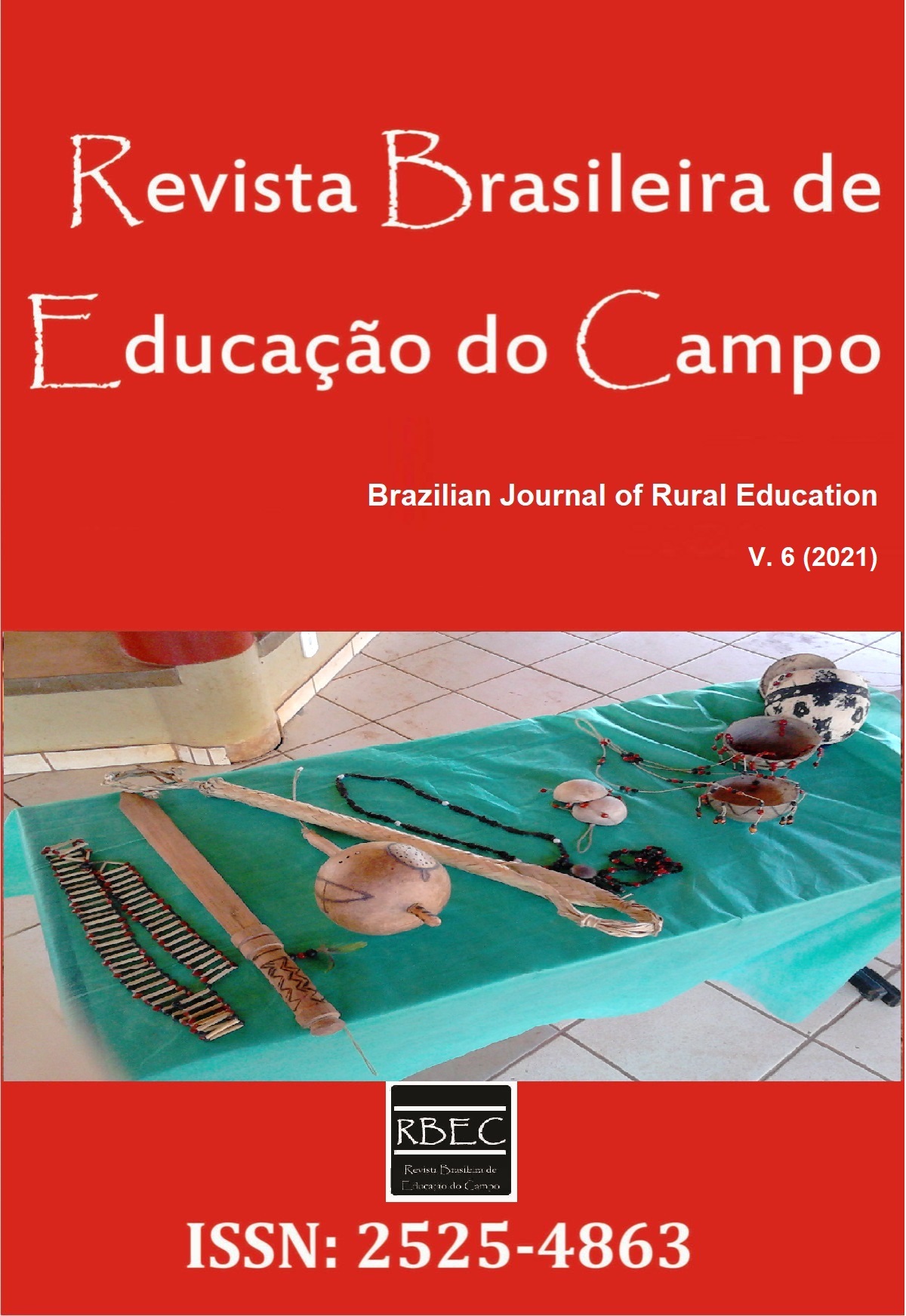Pedagogical chicken: a space for scientific literacy in the science club
DOI :
https://doi.org/10.20873/uft.rbec.e11573Mots-clés :
Scientific Literacy; Meaningful Learning; Country Science and Education Club.Résumé
ABSTRACT. This article aimed to verify if the activities developed in the Science Club based on the reality of the students contributed to a significant learning of the students of the 3rd, 4th and 5th years of a school in the countryside. In order to carry out this research, eight activities were carried out in two months, which involved the construction of a chicken coop, the evolution of the land and a study on the hens. To collect the data, a book with the studied contents was built. In the analysis of the data it was used the Discursive Textual Analysis where it was concluded that the Science Education in the school of/in the countryside, starting from the reality of the students through the Science Club, potentiated a significant learning.
Téléchargements
Références
Arroyo, M. G., Caldart, R. S., & Molina, M. C. (2004). Por uma Educação do Campo. Vozes.
Arroyo, M. G. (2013). Currículo, território em disputa. Vozes.
Ausubel, D. P., Novak, J. D., & Hanesian, H. (1980). Psicologia educacional. Interamericana.
Caldart, R. S. (Org.). (2002). Educação do campo: identidade e políticas públicas. Articulação Nacional Por uma Educação do Campo.
Chassot, A. (2003). Alfabetização científica: uma possibilidade para a inclusão social. Revista Brasileira de Educação, (22), 89-100. https://doi.org/10.1590/S1413-24782003000100009
Chassot, A. (2006). Alfabetização científica: questões e desafios para a educação. Unijuí.
Chassot, A. (2014). Alfabetização científica: questões e desafios para a educação. Unijuí.
Costa, A. (1988). Clubes de Ciências “Pequeno Príncipe” - uma realidade na área rural. Revista do PROCIRS, (1), 38.
Delizoicov, D., & Angotti, J. A. (2000). Metodologia do Ensino de Ciências. Cortez.
Demo, P. (2007). Pobreza Política – A pobreza mais intensa da pobreza brasileira. Autores Associados.
Diretrizes Curriculares Nacionais Gerais da Educação Básica. Diretrizes Curriculares Nacionais para o Ensino Fundamental de 9 (nove) anos. (2013). http://portal.mec.gov.br/docman/julho-2013-pdf/13677-diretrizes-educacao-basica-2013-pdf/file.
Fazenda, I. C. A., Tavares, D. E., & Godoy, H. P. (2015). Interdisciplinaridade na pesquisa científica. Papirus.
Freire, P. (2013). Pedagogia da Autonomia: saberes necessários à prática educativa. Paz e Terra.
Gomes, C. M. B. (1988). Aspectos Psíquicos e Políticos do Ensino no Clube de Ciências. Revista do PROCIRS, 1(1), Porto Alegre: FDRH, 30-33.
Jesus S. M. S. A. (2004). Questões paradigmáticas na construção de um projeto político da Educação do Campo. In Molina, M. C., & Jesus, S. M. S. A. (Orgs.). Por uma Educação do Campo: Contribuições para a construção de um projeto de educação do campo (pp. 53-89). Articulação Nacional “Por Uma Educação do Campo”.
Lakatos, E. M., & Marconi, M. A. (2003). Fundamentos de metodologia científica. Atlas.
Lei de Diretrizes e Bases 9.394, de 20 de dezembro de 1996. Estabelece as diretrizes e bases da educação nacional. http://www2.camara.leg.br/legin/fed/lei/1996/lei-9394-20-dezembro-1996-362578-publicacaooriginal-1- pl.html
Lorenzetti, L., & Delizoicov, D. (2001). Alfabetização científica no contexto das séries iniciais. Revista Ensaio – Pesquisa em Educação em Ciências, 3(1), 37-50. https://doi.org/10.1590/1983-21172001030104
Lopes, W. Z. (2020). Alfabetização Científica com enfoque Ciência, Tecnologia e Sociedade e o Ensino de Ciências nos Anos Iniciais do Ensino Fundamental: importância, concepções de professores e repercussões de ações formativas nas práticas docentes (Dissertação de Mestrado). Universidade Federal do Rio Grande do Sul, Porto Alegre.
Mancuso, R., Lima, V. M. R., & Bandeira, V. A. (1996). Clubes de Ciências: criação, funcionamento, dinamização. SE/CECIRS.
Moraes, R., & Galiazzi, M. C. (2011). Análise textual discursiva. Unijuí.
Moreira, M. A. (2003). Linguagem e aprendizagem significativa. In Atas do IV Encontro Internacional sobre Aprendizagem Significativa. Universidade Federal de Alagoas.
Robaina, J. V. (2016). Projeto de Extensão: Clubes de Ciências do Campo. UFRGS.
Téléchargements
Publié-e
Comment citer
Numéro
Rubrique
Licence
Proposal for Copyright Notice Creative Commons
1. Policy Proposal to Open Access Journals
Authors who publish with this journal agree to the following terms:
A. Authors retain copyright and grant the journal right of first publication with the work simultaneously licensed under the Creative Commons Attribution License that allows sharing the work with recognition of its initial publication in this journal.
B. Authors are able to take on additional contracts separately, non-exclusive distribution of the version of the paper published in this journal (ex .: publish in institutional repository or as a book), with an acknowledgment of its initial publication in this journal.
C. Authors are permitted and encouraged to post their work online (eg .: in institutional repositories or on their website) at any point before or during the editorial process, as it can lead to productive exchanges, as well as increase the impact and the citation of published work (See the Effect of Open Access).














